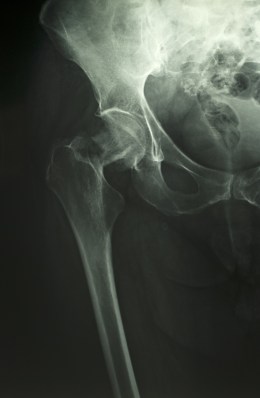
Testing can be a good way to detect potential medical problems before they cause illness, but occasionally such vigilant monitoring can be too much of a good thing.
Among the many tests that doctors recommend as people get older is monitoring for bone mineral density (BMD) to keep track of how quickly bone is being broken down to make sure that the skeleton is strong enough to prevent fractures and other bone failures. People with low BMD readings could benefit from medications that shore up bone and lower the risk of hip and other fractures. So doctors recommend that people over age 65 repeat BMD screening every two years.
(MORE: 10 Ways to Build Healthy Bones (and Keep Them Strong)
But the latest research suggests that all that testing may not be necessary.
Scientists from the Institute for Aging Research and Hebrew SeniorLife in Boston looked at 310 men and 492 women from the Framingham Osteoporosis Study who had two BMD readings of their thigh bones over four years, according to standard guidelines. But when the research team compared the group’s baseline readings to the BMD measurements taken four years later, they found that the percentage of patients whose risk status changed was very small, and that for the most part, the additional tests didn’t add much to the original BMD measurement for helping doctors to determine the participants’ risk of a fracture over the following 12 years. Over that time, the average BMD dropped by 0.6% each year.
For older patients not being treated for active bone thinning, or osteoporosis, the researchers concluded that repeat BMD screening every two years may not be justified.
If these findings are replicated by a larger study, they could change the current guidelines for bone density testing — and affect reimbursement for them as well. Medicare covers BMD screenings every two years indefinitely, and despite whatever the results of the original screening were. Twenty two percent of Medicare beneficiaries now get repeat screenings within three years, but if most of that testing isn’t adding medical value, eliminating them could reduce health care costs. But before the guidelines change, the scientists say, more studies are needed to confirm that less frequent screenings won’t put older patients at risk of more undetected — and potentially expensive — fractures.

